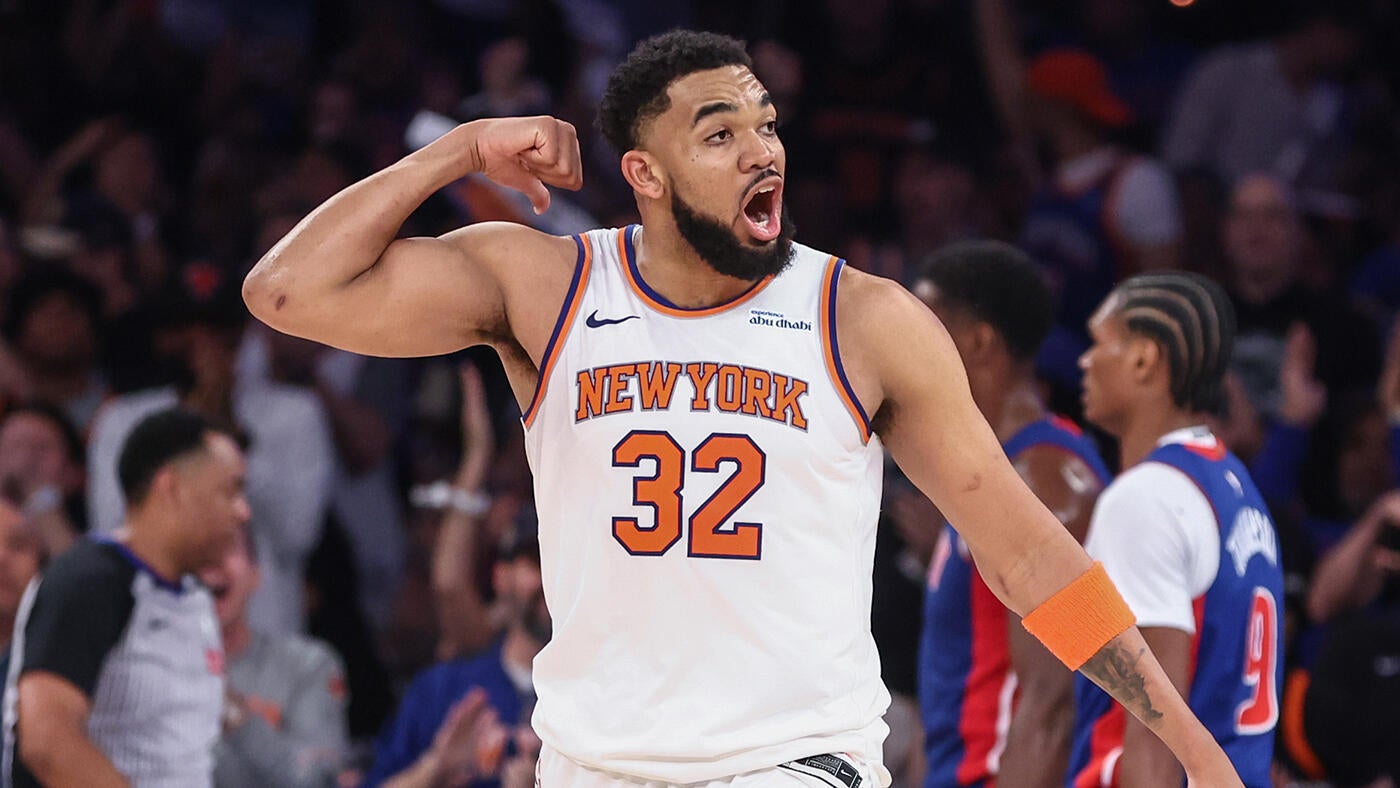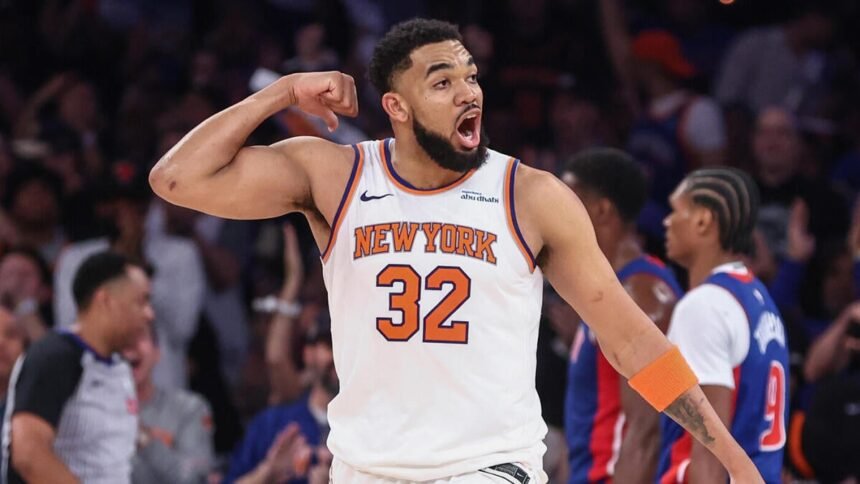
If ever there was a 51-win, third-seeded playoff team that could be considered a disappointment, the New York Knicks would be it.
After seismic trades for Karl-Anthony Towns and Mikal Bridges and a $200 million contract for OG Anunoby, the bar was raised. The Knicks were supposed to be among the elite. But they finished the season 0-10 against the best three teams in the league (Oklahoma City, Boston and Cleveland) and 1-3 against the Detroit Pistons, their first-round opponent that had them down eight and on the ropes through three quarters of Game 1 on Saturday.
Then, out of nowhere, came a 21-0 run that turned Madison Square Garden into a madhouse, and the Knicks never looked back in a 123-112 victory.
You might be tempted to cite Detroit’s inexperience as the culprit here, and you wouldn’t necessarily be wrong. The Pistons were basically hiding under the covers during that fourth quarter. They were, as TV analyst Doris Burke perfectly captured, “shellshocked.” Experience, or lack thereof, can be a crutch on which a lot of vanilla analysis can lean, but in this case it was clear. The Pistons haven’t been anywhere near a late-game playoff environment like the one they just felt. They’ll learn from this.
The Knicks, on the other hand, have been here before. They have their flaws, but if nothing else, they are ready for this moment as a team that was built, very specifically, for this time of year. New York’s brass looked at the Boston blueprint and, with every resource at its disposal, replicated it.
The stable of two-way wings. The stretch big man. The elite shot-creator. The Knicks were not a good defensive team this season but they have the makings of one that can apply all the right kinds of playoff pressure. Detroit’s soon-to-be All-NBA point guard Cade Cunningham, who averaged 31 points per game against this Knicks this season, couldn’t breathe for most of Game 1. Anunoby, a brick of a defender, was extremely physical. Towns showed himself beyond the 3-point line and New York sent swaths of secondary defenders, forcing Detroit’s support staff to beat them.
It burned them for a while. Tobias Harris and Malik Beasley combined for 45 points, but only 11 of them came in the second half. By the time Detroit found itself caught in the energy of that 21-0 avalanche, there was no escaping. Josh Hart started pressing New York’s bet on Cunningham, who became palpably overwhelmed by all the physicality, igniting his special brand of defensive chaos and coast-to-coast finishes either all on his own or by filling lanes and diving straight to the rim.
Again, Detroit’s inexperience played a role in this. New York won’t be able to overwhelm, say, a team like Boston to the tune of 25 points off 21 turnovers if they end up meeting in the second round. Hell, they might not even be able to do it to Detroit again.
But generally speaking, this should be a brand of basketball the Knicks, who are equipped to play a much higher level of defense than they showed in the regular season, can sustain. This is exactly how Leon Rose planned for his team to look in April and May and hopefully June. Interchangeable perimeter pressure. Waves of energy. Two elite scorers in Jalen Brunson and Towns, who scored 34 and 23, respectively, on Saturday.
Throw in Anunoby’s 23 and that’s 80 points from New York’s three best players, and none of it felt beyond the realm of reasonable expectation, even against a nasty defensive team like Detroit. Let’s be careful not to make too much of one game, but let’s also understand that New York was designed for this time of year. Forget the regular-season failings against the best teams. None of that counts anymore. All that counts is what New York did on Saturday, and whether or not they can keep doing it.





